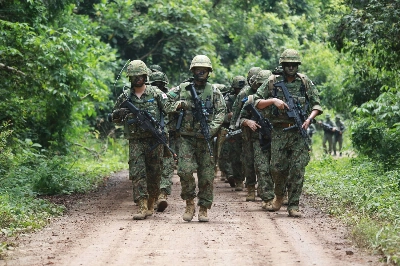British Prime Minister Tony Blair has pulled the plug on Northern Ireland's local elections in an atEtempt to preserve the province's battered peace process. His decision makes sense, but it is indicaEtive of the desperate straits into which supporters of the Good Friday accords have fallen. The fault is not theirs, however: The blame belongs on the Irish Republic Army, which continues to refuse to announce an unconditional renunEciation of war. The IRA must clearly and unequivocally abanEdon the armed struggle.
The Belfast Assembly is where the power-sharing agreed on in the Good Friday accords is supposed to go into action. The Ulster Unionists and Sinn Fein, the political wing of the IRA, have championed the peace agreement and have been rewardEed with the leading positions in government. Yet a series of inEcidents Ethe arrest of IRA members in Colombia for allegedly training Marxist guerrillas and discovery of an IRA ring that allegedly spied on the provincial government Ehave raised questions about the IRA's commitment to peace.
The latter incident obliged Mr. Blair to dissolve the local govEernment. London then demanded that the IRA directly address its willingness to give up violence. The IRA hedged. According to Mr. Blair, Sinn Fein president Gerry Adams made a "point-blank refusal" expressly to rule out activities including trainEing, targeting, intelligence gathering, acquisition, punishment attacks and involvement in riots.

















With your current subscription plan you can comment on stories. However, before writing your first comment, please create a display name in the Profile section of your subscriber account page.